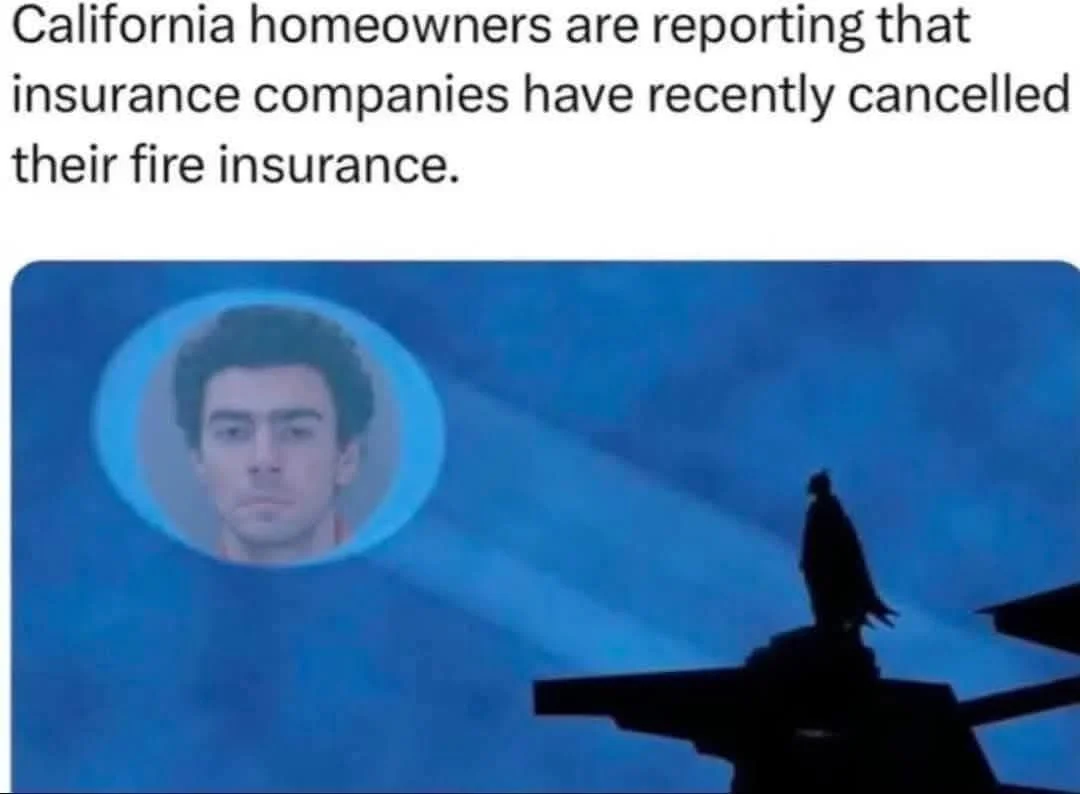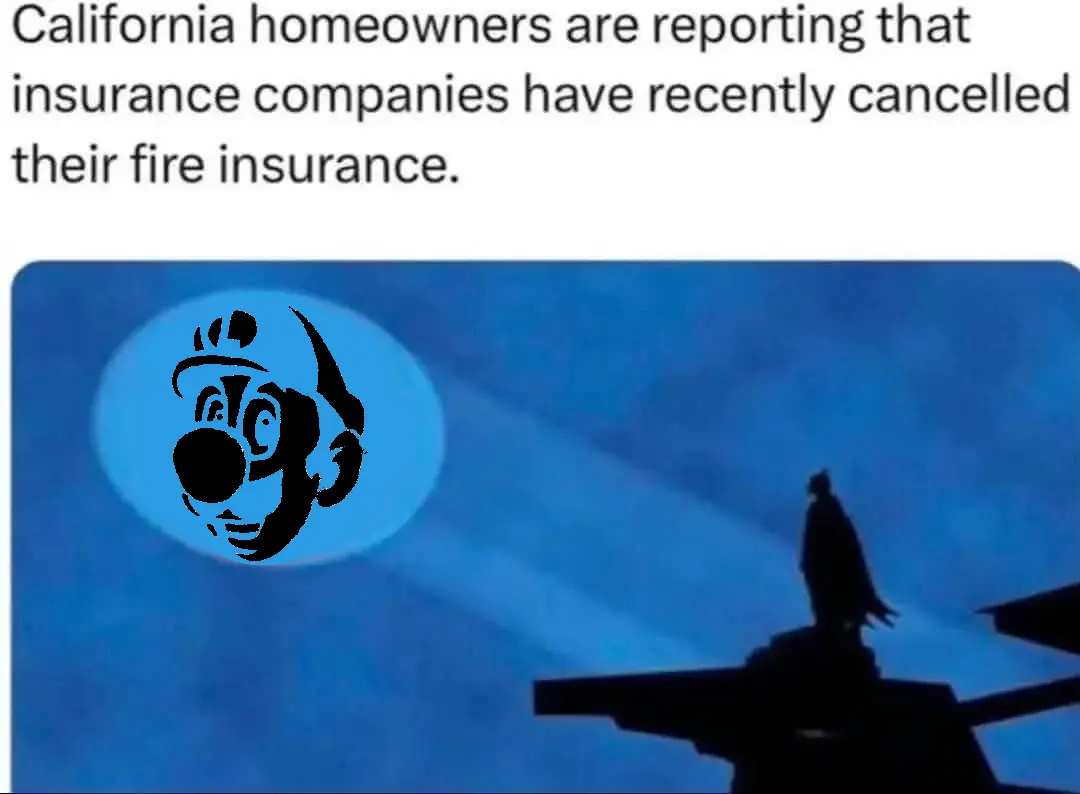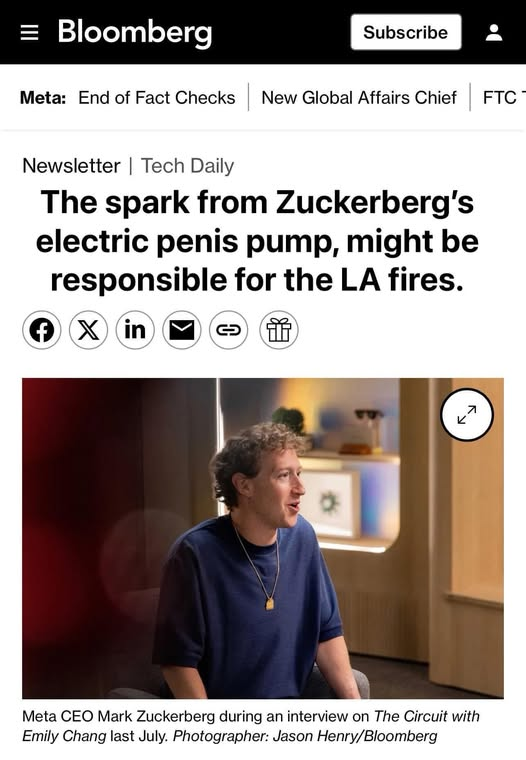Insurance, both property and health, is completing it's morph into a parasitic value extraction tool with zero actual use. They are committing straight fraud at this point, daring people to sue them for contract breach, knowing many won't
News
Welcome to the News community!
Rules:
1. Be civil
Attack the argument, not the person. No racism/sexism/bigotry. Good faith argumentation only. This includes accusing another user of being a bot or paid actor. Trolling is uncivil and is grounds for removal and/or a community ban. Do not respond to rule-breaking content; report it and move on.
2. All posts should contain a source (url) that is as reliable and unbiased as possible and must only contain one link.
Obvious right or left wing sources will be removed at the mods discretion. We have an actively updated blocklist, which you can see here: https://lemmy.world/post/2246130 if you feel like any website is missing, contact the mods. Supporting links can be added in comments or posted seperately but not to the post body.
3. No bots, spam or self-promotion.
Only approved bots, which follow the guidelines for bots set by the instance, are allowed.
4. Post titles should be the same as the article used as source.
Posts which titles don’t match the source won’t be removed, but the autoMod will notify you, and if your title misrepresents the original article, the post will be deleted. If the site changed their headline, the bot might still contact you, just ignore it, we won’t delete your post.
5. Only recent news is allowed.
Posts must be news from the most recent 30 days.
6. All posts must be news articles.
No opinion pieces, Listicles, editorials or celebrity gossip is allowed. All posts will be judged on a case-by-case basis.
7. No duplicate posts.
If a source you used was already posted by someone else, the autoMod will leave a message. Please remove your post if the autoMod is correct. If the post that matches your post is very old, we refer you to rule 5.
8. Misinformation is prohibited.
Misinformation / propaganda is strictly prohibited. Any comment or post containing or linking to misinformation will be removed. If you feel that your post has been removed in error, credible sources must be provided.
9. No link shorteners.
The auto mod will contact you if a link shortener is detected, please delete your post if they are right.
10. Don't copy entire article in your post body
For copyright reasons, you are not allowed to copy an entire article into your post body. This is an instance wide rule, that is strictly enforced in this community.
I agree with the first sentence, but I don't think there's a lawsuit here as the contracts that you sign with them have a limited term and they are simply not renewing
Always has been.
Health insurance yes. But property insurance has a use, but these companies have ceased actually providing that service.
Did the CEO's house burns down in the wild fire as well?
wow, its almost as if we should cut off the heads of insurance CEOs and nationalize them all into one low cost government plan thats paid for with pennies on the dollar in taxes.
lol, who am I kidding. Idiot Americans will always prefer paying 3000 dollars for bad coverage, rather than pay 100 in taxes for great coverage.
BUT MUH TAXESS
With climate change, there is no option for “low cost” plan, government or no.
You can’t constantly have massive losses like these fires in a single area all paying out claims and expect to pay them off with low premiums.
I haven't seen it in the comments yet but this is just the death spiral of climate change. Everything will just get worse from here on out as long as society operates the way it does. To everyone's "surprise" I'm sure.
You had me at cutting off the heads of CEOs.
Guillotines go brrrrrrrrr
Woodchippers. Guillotines are too 18th century. Put em' in head first.
In that case my vote would be feet first. But I think they've caused enough pain to deserve a little on their way out ¯\_(ツ)_/¯
That is what confuses me. Nationalized Healthcare, even an extensively covered one (with dental, optical, and prescription meds included) will be much cheaper overall than the private bullshit happening now.
I never understood how privatization advocates so routinely get away with bullshit. How can anyone not see how public program failures are almost always the result of deliberate sabotage.
deliberate sabotage bought and paid for by the private industry, to increase public pressure to move more healthcare to the private sector, so CEOs can make more billions.
and i have no idea. americans are fucking stupid. "Do you want to pay an extra 100 dollars in taxes for great health coverage and no declining what you need?" "NO! I WANT TO PAY 5000 FOR COVERAGE THAT DENIES EVERYTHING, BECAUSE A POOR CEO NEEDS A NEW GOLDEN TOILET ON HIS 8TH YACHT "
Or, you know, tackle climate change. But both are equally unlikely.
You'd think that insurance companies would be on the forefront of pushing climate change mitigation and prevention specifically because the impacts of worsening climate change will have a massive impact on their bottom line.
Maybe they can counter some of the petro company propaganda with their own marketing.
Their time preferences have been shortened to "this quarter" just like the rest of the economy. We would need to buy insurance plans that last decades and not renegotiate every year.
So long as we live in an economy designed to maximize GDP, this can't work.
Why would they do that rather than just not offering plans in areas where they project they will lose money?
They'll run out of places to sell insurance pretty fast if climate change isn't effectively countered.
And that's when you'll start seeing the property insurance industry suddenly really give a shit about climate change.
They’re in the business of making money, not fixing problems. It’s easier to just pull out of an unprofitable area than fix the Republican party’s head-in-their-ass ideas about climate change.
And when they run out of places to profitably insure?
TBH, if insurance companies started pushing for climate change policies it would probably make those policies less popular. If there's an industry less trusted than Big Oil, it's Insurance.
I'm thinking a death match between big oil and big insurance.

Someone should adjust the silhouette to look like Mario bros Luigi
 The exposure isn't quite right and there are artifacts, but I am not a graphic designer so 🤷
The exposure isn't quite right and there are artifacts, but I am not a graphic designer so 🤷
It's beautiful lol, your skills are apt. I meant the Batman on the building silhouette but this is equally cool
I meant the Batman on the building silhouette
Aww dammit 😅
I think the curious aspect of this is that business is absolutely aware, and acknowledges existence of the climate change.
lol dude climate change has been in companies' drawers since the 1970s, for example shell and such. they just acted as if they didn't know to continue selling at record speeds.
The issue isn't just local. "This is predicted to cascade into plunging property values in communities where insurance becomes impossible to find or prohibitively expensive - a collapse in property values with the potential to trigger a full-scale financial crisis similar to what occurred in 2008," the report stressed.
I know this isn't the main point of this threadpost, but I think this is another way in which allowing housing to be a store of value and an investment instead of a basic right (i.e. decommodifying it) sets us up for failure as a society. Not only does it incentivize hoarding and gentrification while the number of homeless continues to grow, it completely tanks our ability to relocate - which is a crucial component to our ability to adapt to the changing physical world around us.
Think of all the expensive L.A. houses that just burned. All that value wasted, "up in smoke". How much of those homes' value is because of demand/supply, and how much is from their owners deciding to invest in their resale value? How much money, how much human time and effort could have been invested elsewhere over the years? Notably into the parts of a community that can more reliably survive displacement, like tools and skills. I don't want to argue that "surviving displacement" should become an everyday focus, rather the opposite: decommodifying housing could relax the existing investment incentives towards house market value. When your ability to live in a home goes from "mostly only guaranteed by how much you can sell your current home" to "basically guaranteed (according to society's current capabilities)", people will more often decide to invest their money, time, and effort into literally anything else than increasing their houses' resale value. In my opinion, this would mechanically lead to a society that loses less to forest fires and many other climate "disasters".
I have heard that Japan almost has a culture of disposable-yet-non-fungible homes: a house is built to last its' builders'/owners' lifetime at most, and when the plot of land is sold the new owner will tear down the existing house to build their own. I don't know enough to say how - or if - this ties into the archipelago's relative overabundance of tsunamis, earthquakes, and other natural disasters, but from the outside it seems like many parts of the USA could benefit from moving closer to this Japanese relationship with homes.
Speaking of the Palisades fire, I'm not sure if anyone has looked into this yet, but they probably should:

